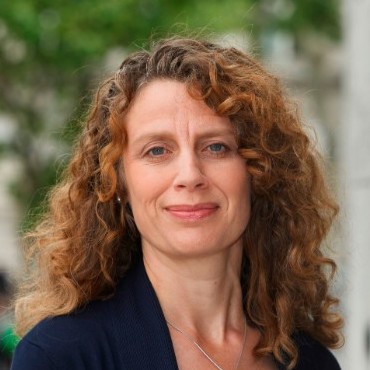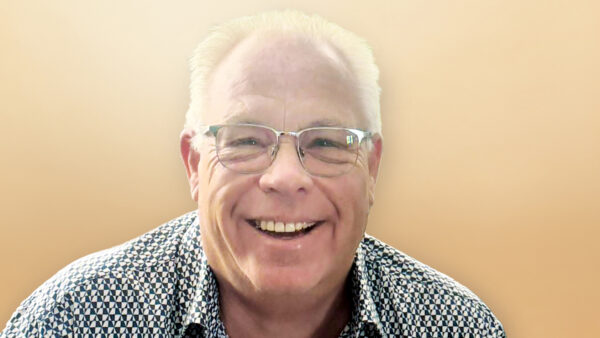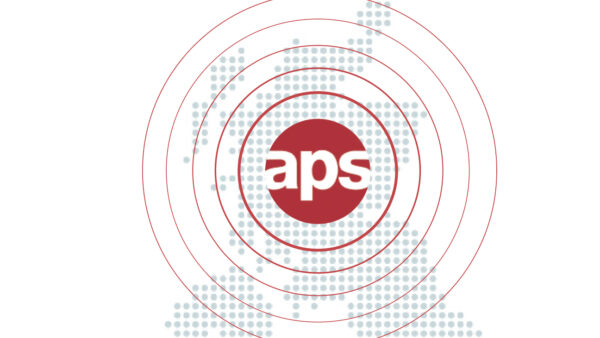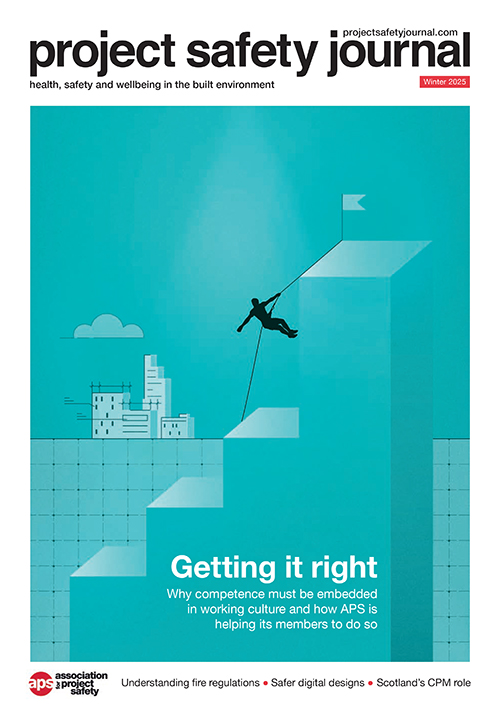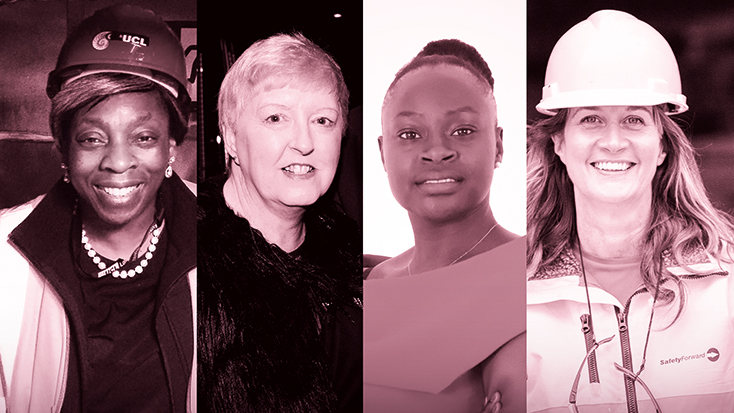
In a combined celebration of National Careers Week and International Women’s Day, Kristina Smith spoke to four professionals with a passion for health and safety – and for encouraging others into the industry they love.
The caring disruptor
Margaret Sackey, capital projects health and safety manager, University College London
Margaret Sackey says that she came into health and safety “by accident”. But, having listened to her story, there’s another way to look at her transition from civil engineer to health and safety expert: she’s a natural leader who started instigating safety regimes because it made sense. And, because she did it so well, she made herself a sought-after commodity.
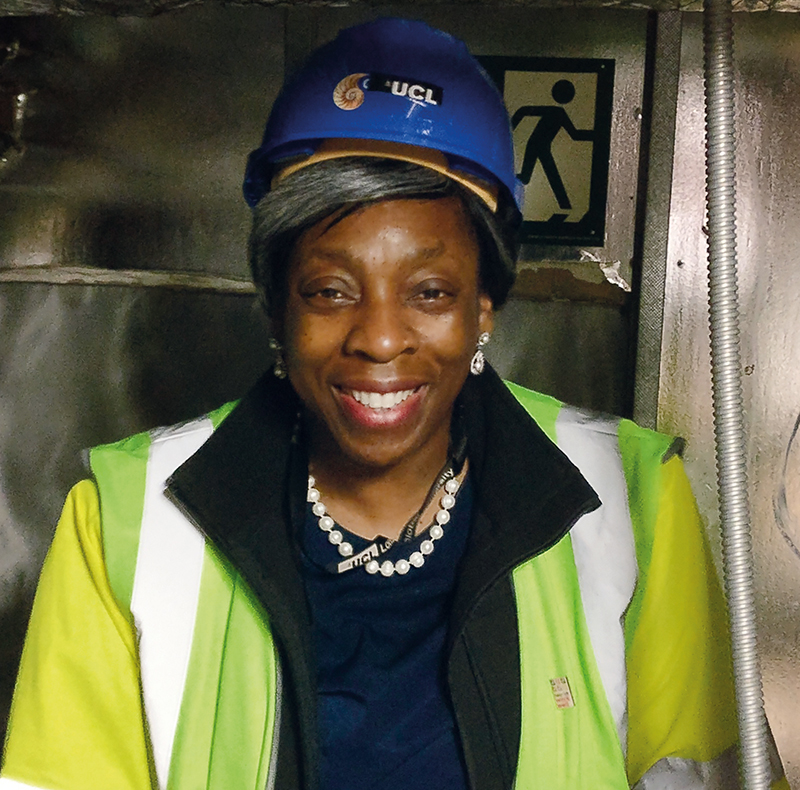
“They wanted someone to bring in best practice, to improve the procedures, working alongside client managers, internal and external project managers and site-based teams.”
“I like to help and come alongside people to improve health and safety compliance,” says Sackey, when asked what she most enjoys about her role.
Her drive to help people, inside and outside work, is perhaps the reason why she has succeeded in establishing new systems and procedures in each of the organisations for which she has worked. After Lambeth Borough Council, she was headhunted by the newly established Transport for London and more recently University College London (UCL), where she is health and safety manager for capital projects.
Sackey’s health and safety journey began when she encountered a potential health hazard – pigeon guano – as she was crawling on scaffolding beneath Vauxhall Bridge, overseeing a refurbishment project. As a result, she found out about risk assessments and went on to learn about the new Construction (Design and Management) (CONDAM) regulations – later to gain the more palatable acronym of CDM – when they were introduced in March 1995.
At Lambeth Council, Sackey was pushed forward to do a presentation to the Health and Safety Executive (HSE) about how she was applying the CDM regulations on one of her projects. “I became known as Mrs CDM throughout the local authority,” she says.
Working with the council’s health and safety manager, she rolled out a training programme to get all the council’s employees up to speed across all its directorates where construction work was under way.
Sackey seems to relish the task of upgrading safety procedures and practices. “It’s all about joining the dots,” she says. “We all have strengths and weaknesses.” It’s about playing to people’s strengths, she continues, and providing the right sort of training to help address weaknesses.
Sackey has been at UCL since 2018, joining the university four years into its 10-year £1.7bn capital works programme. “They wanted someone to bring in best practice, to improve the procedures, working alongside client managers, internal and external project managers, site-based teams, maintenance and operations staff,” she explains.
Margaret Sackey CV
Headhunted to bring best-practice procedures to UCL’s £1.7bn capital works programme in 2018.
Headhunted as senior health and safety manager at the newly formed Transport for London (TfL) in 2001, unifying practices and procedures from six different organisations.
Worked at the London Borough of Lambeth for 17 years, starting as an assistant project manager overseeing works on highways and highway structures.
One of her favourite tasks is delivering monthly UCL briefing and training sessions for internal and external people: client project managers, senior directors, designers, contractors. She has always been very active through the Institution of Civil Engineering (ICE), her “second home” as a young engineer thirsty for information. Now a fellow, she sits on the ICE’s health and safety expert panel, which she chaired for two consecutive terms. She was also a member of the ICE’s working group which produced the In Plain Sight
report in 2018 in response to the Grenfell disaster.
With the approach of the Building Safety Bill, Sackey is busy preparing for yet another disruption, assembling training programmes to ensure UCL and its stakeholders are ready for the repercussions. “Don’t wait until it happens. Even if you don’t know what all the detail is going to be, start planning now,” she urges. “It’s a juggernaut, coming down the hill.”
From A to Z
Beverley Sexton, health, safety and training manager, Jackson Jackson & Sons
Bev Sexton is sometimes called ‘Alphabet Bev’ due to the impressively long list of letters after her name: Dip2.OSH, CMIOSH, FCIOB, RMaPS, FRSPH, MIIRSM, CEnv, MIEMA, DipDEA, DipGDA, CertMgmt (Open). But the nickname could apply equally well to the long list of roles she carries out for Jackson Jackson & Sons, a Rochdale contractor.
After 18 years as health, safety and environment manager with Rank Brimar, a manufacturer of cathode ray tubes for the defence industry, and 11 years with Oldham Training Centre as health, safety and environment manager, Sexton joined Jackson in 2007.
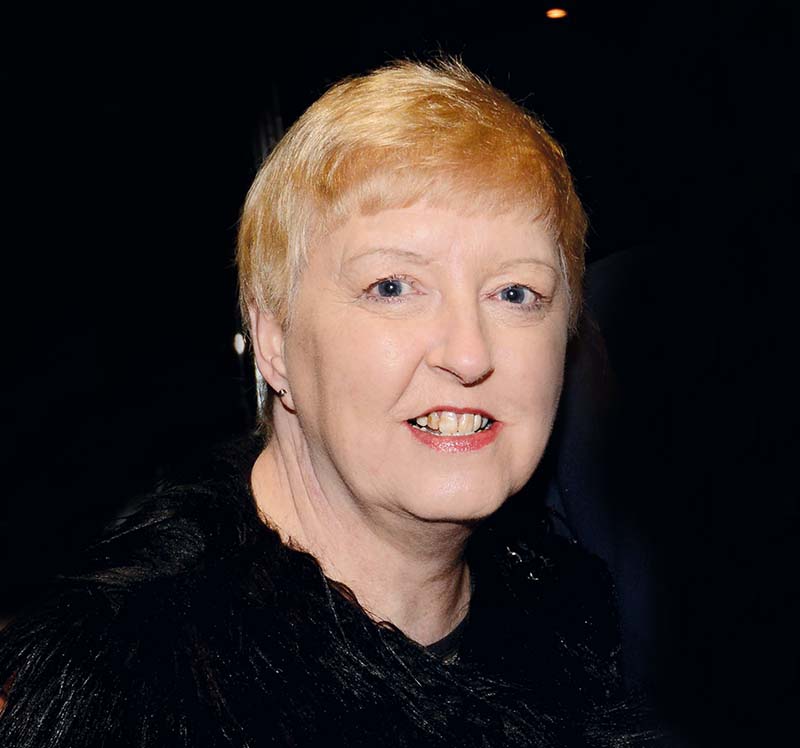
“You get a bit of flak, but it is very rewarding, because you know you are helping to protect people’s lives.”
She soon added ‘quality’ onto her initial responsibilities for health, safety and environmental management and has a string of other responsibilities including training, overseeing an apprentice programme, data protection officer, safeguarding officer and mental health support manager. Recently she trained as a retrofit co-ordinator, as she had already qualified as a domestic energy assessor under the old ‘green deal’ scheme.
One of her earlier tasks at Jackson was to work with every employee in the company – all 58 of them – to gain NVQs so that they could then go on to get CSCS (Construction Skills Certification Scheme) accreditation. Having started to carry out some HR tasks, such as sending out contracts to new employees, she went on to gain an HR level 4 qualification.
“I have to do CPD as a member of various professional bodies, so I looked for courses that counted as CPD as well,” she explains.
With a teaching qualification gained at Oldham Training Centre, she is as enthusiastic about giving training as about receiving it, conducting many in-house training courses. As well as being cost-effective, in-house training is more immediate and can respond to business or individual needs, says Sexton. “In 2019, I successfully got Jackson’s training academy approved by the CITB,” she adds.
The best part of Sexton’s job is visiting projects: “I enjoy going out on site, meeting the lads. I have a very good working relationship with the people on site.”
Sexton has seen attitudes change over her 40-plus years in the industry. “I trained in a time where they did not take women very seriously,” she says. “On my very first training course for NEBOSH, the instructor said: ‘Health and safety is not a woman’s job.’ He wasn’t there the next day.” She and two other women on the course had reported back to their managers who had complained to the college.
Beverley Sexton CV
HSEQ manager, Jackson Jackson & Sons since 2007.
HSE manager, Oldham Training Centre for 11 years.
HSE manager at Rank Brimar, manufacturer of cathode ray tubes for the defence sector, for 19 years.
Even when she joined Jackson, Sexton encountered some prejudice. “I remember my early days. Some people were saying ‘She’s a woman. What does she know?’ I soon showed them…” Those experiences mean she is keen to help women into the industry, through Women in Construction, as a STEM ambassador and working with a local college and school.
Recently, Sexton has taken on an apprentice who will eventually take on health and safety management duties under her watchful eye. She believes apprenticeships are a good route for anyone looking to get into the industry and would encourage young people to pusue a career like hers:
“It’s a very tough career but it’s very rewarding,” she says. “You have got to be able to do things with employees that they may not like. You get a bit of flak, but in the end, it is very rewarding, because you know you are helping to protect people’s lives.”
Rising star
Jessy Gomes, technical safety systems lead, Here East campus, University College London
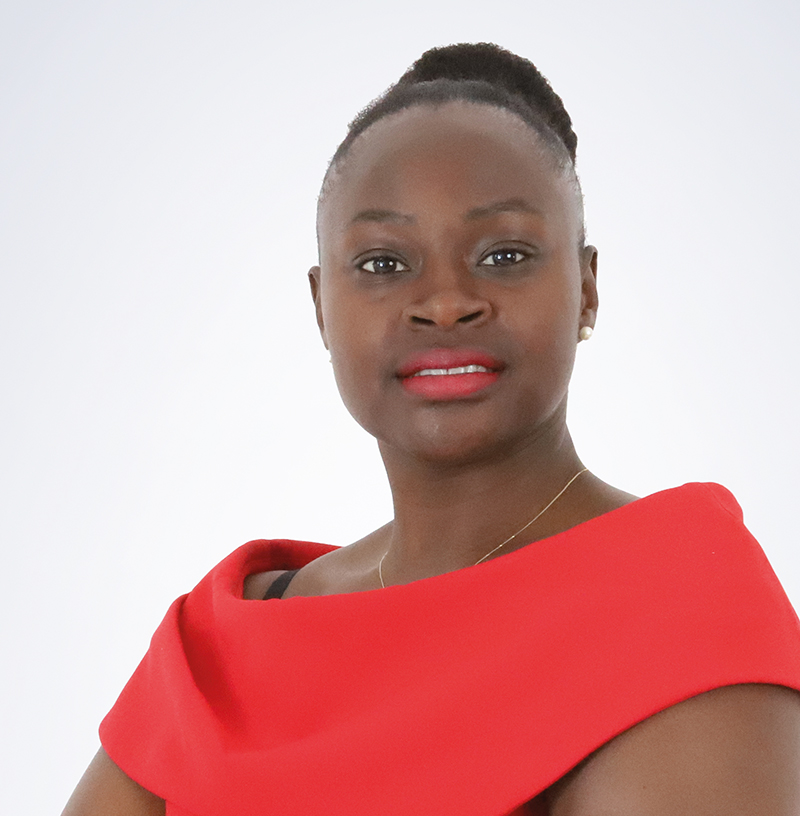
“When it comes to research, everything is new. It’s what makes my role challenging. I have to work with the academic team, making sure that everything is done safely.”
Jessy Gomes is both an employee at University College London and a PhD student there. At the university’s Here East campus she is technical safety manager, overseeing the health and safety aspects of research on technology such as robotics, drones, biotechnology and bridge testing. In her PhD, she is researching how health, safety, wellbeing and the environment in construction could work as an integrated system –
rather than independently in silos.
Gomes began her career in sustainability-led roles in her home country of France. When she moved to the UK in 2012, the first opportunity she came across was in construction, where she felt at home because her father worked in the industry. Learning both English and the CDM regulations fast – and on the job – she worked for two consultancies before moving to Mace Group, where she was selected to attend the company’s executive and leadership programme at Imperial College London.
Unashamedly ambitious, Gomes won the Best Woman in Health and Safety category in the Women in Construction & Engineering Awards in 2021 and one of Health and Safety at Work’s 40 under 40 achievers in 2018. She has been an IOSH council member since 2019. Gomes is frank about the challenges she faces, as someone who doesn’t fit the traditional construction mould in the UK and explains that becoming a parent created even more barriers. (She talks about this in her recent TEDx talk.)
Jessy Gomes CV
Currently technical safety systems lead, Here East campus, UCL.
2012-2020, health, safety and wellbeing and CDM consultant for consultancies and clients including Goldman Sachs, EDF Energy, RBS and NHS.
In 2012 came to UK and worked for HSE in health and safety legislation research.
2007-2010, quality and sustainability roles for French firms Enedis, Autoliv and Agrana Group.
Gomes moved to UCL in 2020, a role which requires brand-new procedures – for the brand-new technology being developed there. “It’s a building that is both an education and research facility, with external partners working alongside academics,” explains Gomes. “We have different departments from UCL all under one roof, with ground-breaking research that interfaces between two or more disciplines. It could be nanotechnology, using robotics, for instance.
“When it comes to research, everything is new,” she continues. “It’s what makes my role challenging. I have to work with the academic team, writing risk assessment, method statements, making sure that everything is done safely.”
Although Gomes’ current role is more academic than construction, she still loves the industry – and may return to it when the right opportunity arises. “I don’t want to sugar-coat it: it’s hard. Even in 2022, you can still walk into a room and feel uncomfortable. But it’s also rewarding.”
Preparing for a new era
Marisa Firkins, managing director, Safety Forward
There can’t be many health and safety consultants with the same background as Marisa Firkins. Now managing director of consultancy Safety Forward, Firkins was previously an investigator with the Serious Organised Crime Agency.
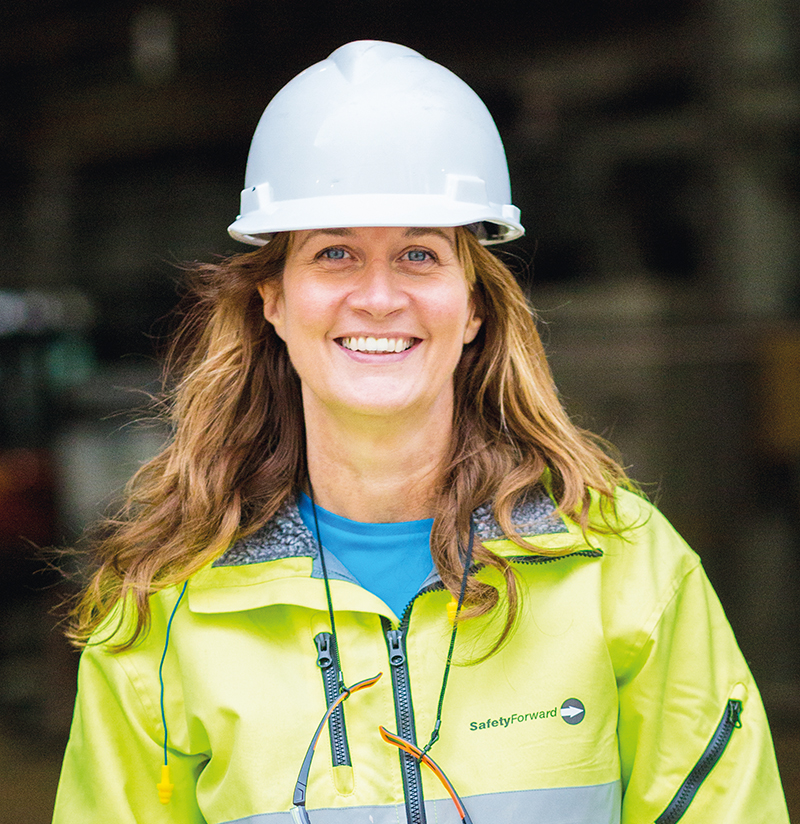
“I was risk assessing everything from people scaling down buildings, dealing with pirates to working on construction projects on our estate.”
Some 12 years into her health and safety career, and now employing six people in a business she started in 2014, Firkins firmly believes that the industry needs people with different backgrounds.
“One of the best things about my job is bringing new people into the health and safety industry, particularly into construction,” she says. “I think it’s been recognised as a career that you can do without having to have had 25 years of experience… you can come in as a fresh person. It’s time for a change.”
As an ambassador for Women in Construction, Firkins relishes the chance to bring more women into the male-dominated sector. In fact, if you look at her team line-up, there is just one man on the staff.
Firkins made the switch from investigator to health and safety adviser due to personal reasons: her husband was ill and she wanted to reduce the travelling her role required. Having trained for her NEBOSH general certificate at night school, she applied for a new role that came up with the agency which required the rare combination of operational experience and health and safety competence.
It was a varied role. “I was risk assessing everything from people scaling down buildings, jumping into ships, dealing with pirates to people working on construction projects on our estate,” she says.
After five years, she was able to take redundancy. A chance conversation with a friend in the pub encouraged her to set up on her own as a consultancy.
Today her job is a real mixture: managing and mentoring the people on her team, visiting clients to advise them on strategy, delivering events or training for clients.
“When we bring a client on board, I talk to them about what they are hoping to achieve, what their goals are,” says Firkins. “We could be working out an improvement plan to improve things like the safety culture or putting management systems in place.”
Marisa Firkins CV
Founded consultancy Safety Forward in 2014, which now employs six people.
Health and safety adviser at National Crime Agency for four years.
Between 2003 and 2010 she was an intelligence officer with the National Criminal Intelligence and then an Investigator at the Serious Organised Crime Agency.
The Covid pandemic, of course, brought lots of work Safety Forward’s way. It also shone a bright light on companies’ real attitude towards their people, says Firkins.
“I don’t think there’s ever been a time when employers had such a chance to show their duty of care,” she says. “It sorted the wheat from the chaff.”
Greater responsibility and strong governance will be a strengthening theme for companies in coming years, predicts Firkins.
“A lot of company directors or owners, there is a lack of accountability around health and safety,” she says. “It’s delegated down the line, diluted. Changes ahead, off the back of Grenfell, will mean that people are held more accountable for leadership and decision-making in their businesses around health and safety.”
Image: www.jamesbastable.co.uk





